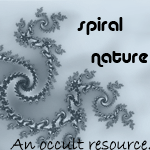Never say die
By Jack Faust | September 19, 2010 | Print This Post | E-mail This Post | 6 Comments
As a special treat for International Talk Like a Pirate Day Jack Faust has written an in-depth and thought provoking essay about piracy – what it is, what it means and what it could mean in the future.
Anticopyright: September 18th, 2010.
The following is the sole “intellectual property” of Jack Faust…but he doesn’t care what you do with it. Hell, you can even lie and claim that all of these ideas are your own. But if he catches you, he’ll probably make fun of you for a long time.
Biting the Hand that Feeds
Information was never intended to be free. Knowledge has almost always come with a price tag, though the price tag differed depending on which civilization you were a part of. One way or another, however, you’ve almost always been expected to pay for that knowledge. In the past, the reason for doing so was often a matter of prestige; access to privileged information lead to a “special status” to which the consensus thus granted power to in the form of authority. Of course, technology has now made it so that such status, privilege, and information might not last forever…
Some forms of piracy, on the other hand, will last forever. One might take the instance of Somalian pirates in recent years. Largely faced by a lack of economy, which has been made worse both by the recent Somali civil war, and the divestment of fishing territory by foreign corporations. Before one was to begin discussing the moral implications of such activities, it should be noted that the yearly per-capita income of a family in Somalia is $600, making it one of the poorest countries in the world.
But let’s not mistake the above for what’s happening across the Internet. The first children of the 21st century and the last children of the 20th century are not occupying somebody else’s boat with guns, divesting them of their property, and then making off to sell it on the black market. Why, then, do we call the act of file sharing piracy? Continue reading »
Save & Share: Del.icio.us Digg Facebook Reddit Stumble it! Twitter






